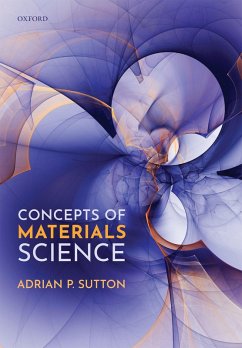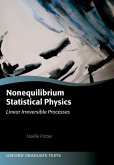All technologies depend on the availability of suitable materials. The progress of civilisation is often measured by the materials people have used, from the stone age to the silicon age. Engineers exploit the relationships between the structure, properties and manufacturing methods of a material to optimise their design and production for particular applications. Scientists seek to understand and predict those relationships. This short book sets out fundamental concepts that underpin the science of materials and emphasizes their relevance to mainstream chemistry, physics and biology. These include the thermodynamic stability of materials in various environments, quantum behaviour governing all matter, and active matter. Others include defects as the agents of change in crystalline materials, materials at the nanoscale, the emergence of new science at increasing length scales in materials, and man-made materials with properties determined by their structure rather than their chemistry. The book provides a unique insight into the essence of materials science at a level suitable for pre-university students and undergraduates of materials science. It will also be suitable for graduates in other subjects contemplating postgraduate study in materials science. Professional materials scientists will also find it stimulating and occasionally provocative.
Dieser Download kann aus rechtlichen Gründen nur mit Rechnungsadresse in A, B, BG, CY, CZ, D, DK, EW, E, FIN, F, GR, HR, H, IRL, I, LT, L, LR, M, NL, PL, P, R, S, SLO, SK ausgeliefert werden.









